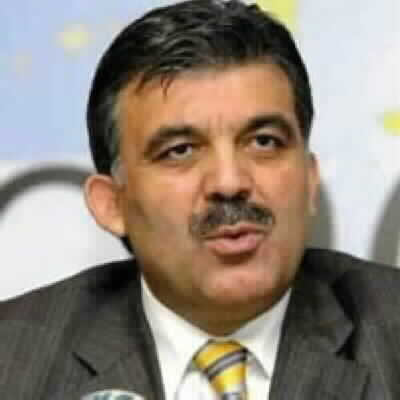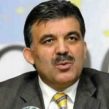
TURKEY LAUNCHES KARABAKH PEACE INITIATIVE
Publication: Eurasia Daily Monitor Volume: 5 Issue: 175

On September 10 Turkish Foreign Minister Ali Babacan announced that he expected to meet with his Azeri and Armenian counterparts in New York later this month on the fringes of the annual UN General Assembly meetings to discuss a solution to the problem of Karabakh (NTV, September 10).
On September 6, Turkish President Abdullah Gul paid the first visit ever to Armenia by a Turkish head of state when he attended a World Cup 2010 qualifying match between the Turkish and Armenian national soccer teams (see EDM, September 4). The visit followed a number of discreet contacts between Turkish and Armenian diplomats in an attempt to find ways of normalizing relations (see EDM, July 25).
Turkey was one of the first countries to recognize the Republic of Armenia following its declaration of independence in 1991; but in 1993 Turkey severed all diplomatic ties with Armenia and closed their shared land border in response to Yerevan’s support for an armed uprising by ethnic Armenians in the Karabakh region of Azerbaijan, with which Turkey has traditionally enjoyed close relations. Flights between Turkey and Armenia resumed in 2003, but the land border remains closed. Energy pipelines and rail links between Azerbaijan and Turkey have pointedly circumvented Armenia and run through Georgia instead. Relations between Yerevan and Ankara have been further complicated by Turkey’s continuing refusal to accept that the massacres and deportations of ethnic Armenians during the final years of the Ottoman Empire constituted genocide.
Armenia has insisted, however, that discussions about the genocide should follow, not precede, the normalization of relations.
“The first subject on the table is the normalization of relations. This means the improvement of diplomatic relations and the opening of the borders and border gates,” Armenian Foreign Minister Eduard Nalbantyan said in an interview on the CNNTurk television news channel. “I believe that we can discuss all problems but in an environment where we have normal relations. Then we shall be able to talk about even the toughest problems in a practical and pragmatic manner” (CNNTurk, September 11).
On his return from the soccer match in Yerevan, Gul told Turkish reporters that the issue of the genocide had not even been mentioned in his talks with Armenian President Serzh Sarkisian (Radikal, Milliyet, September 8). As a result, in the short-term at least, the key to the improved relations between Turkey and Armenia lies in progress over Karabakh; with Turkey now taking the lead in trying to broker an agreement between Armenia and Azerbaijan.
“We are planning a triple meeting in New York as foreign ministers of Turkey, Azerbaijan, and Armenia. We believe this will contribute to solving problems,” said Babacan (NTV, September 10).
The Turkish media reported that Babacan had suggested the New York meeting to Armenia first and then called Azeri Foreign Minister Elmar Mammadyarov (NTV, September 10). Babacan’s spokesperson, Burak Özügergin, later told the Anatolia news agency that Mammadyarov had responded positively (Anadolu Ajansi, September 10).
On September 10 Gul flew to Baku for a one day working visit, during which he met with Azeri President Ilham Aliyev. Gul’s visit is believed to have been designed partly to promote Turkish Prime Minister Recep Tayyip Erdogan’s idea of creating a Caucasus Stability and Cooperation Platform (CSCP) as a regional framework in which the countries of the region could resolve their differences without recourse to violence (see EDM, August 14); but Gul was also anxious to reassure Azerbaijan over his visit to Yerevan on September 6, which was angrily denounced in the ultranationalist Azeri press. On September 8 the Azeri Press Agency quoted an unnamed, high-ranking Azeri official as saying that Azerbaijan would not participate in the CSCP unless the dispute over Karabakh were resolved first. Armenia has repeatedly expressed its enthusiastic support for the CSCP without any preconditions (CNNTurk, September 11).
There were concerns in the Turkish press that Gul might meet a frosty reception in Baku; but, on the contrary, the Azeri government appears to have gone out of its way to greet him as warmly as possible. A one-hour meeting between Aliyev and Gul was followed by more detailed discussions between their respective delegations. Gul later confirmed that Mammadyarov would attend the trilateral talks in New York (CNNTurk, NTV, September 11).
Yet some of Gul’s remarks raised questions about exactly what role Turkey is going to play in the talks in New York. After effusively lauding the “eternal friendship and brotherhood between Turkey and Azerbaijan,” which he described as “one nation, two states,” Gul noted that: “Turkey has always supported, and will always continue to support, Azerbaijan on political issues.” (CNNTurk, NTV September 11).
This would appear to suggest that Gul does not foresee Turkey playing the role of an impartial broker in the trilateral talks in New York. The Turkish media also appeared to have been swept up in the enthusiasm of the moment, noting that all that it would take now for the border with Turkey to be opened and diplomatic relations between Ankara and Yerevan to be restored would be for Armenia to withdraw all of its troops from Karabakh (CNNTurk, NTV, September 11). It is unclear whether this is the kind of negotiated compromise Nalbantyan will be hoping for when he flies to New York later this month.
Seasoned Turkish officials have been considerably more cautious. After confirming that Turkish and Armenian officials would hold further talks next week, one unnamed, high-ranking Turkish official was quoted as warning against an imminent breakthrough. “The atmosphere is positive but we have to be realistic,” the official said (CNNTurk, September 11).
Even if the talks in New York do not result in substantive progress, there is still some time before soccer diplomacy has to kick in again. Sarkisian has already confirmed his willingness to attend the return match between Turkey and Armenia in Istanbul on October 14, 2009.




